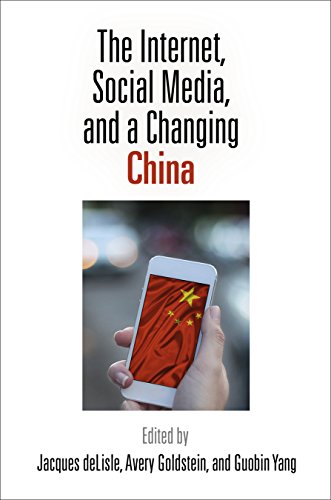The Internet, Social Media, and a Changing China
The Internet and social media are pervasive and transformative forces in contemporary China. Nearly half of China’s 1.3 billion citizens use the Internet, and tens of millions use Sina Weibo, a platform similar to Twitter or Facebook. Recently, Weixin/Wechat has become another major form of social media. While these services have allowed regular people to
The Internet and social media are pervasive and transformative forces in contemporary China. Nearly half of China’s 1.3 billion citizens use the Internet, and tens of millions use Sina Weibo, a platform similar to Twitter or Facebook. Recently, Weixin/Wechat has become another major form of social media. While these services have allowed regular people to share information and opinions as never before, they also have changed the ways in which the Chinese authorities communicate with the people they rule. China’s party-state now invests heavily in speaking to Chinese citizens through the Internet and social media, as well as controlling the speech that occurs in that space. At the same time, those authorities are wary of the Internet’s ability to undermine the ruling party’s power, organize dissent, or foment disorder. Nevertheless, policy debates and public discourse in China now regularly occur online, to an extent unimaginable a decade or two ago, profoundly altering the fabric of China’s civil society, legal affairs, internal politics, and foreign relations.
The Internet, Social Media, and a Changing China explores the changing relationship between China’s cyberspace and its society, politics, legal system, and foreign relations. The chapters focus on three major policy areas—civil society, the roles of law, and the nationalist turn in Chinese foreign policy—and cover topics such as the Internet and authoritarianism, “uncivil society” online, empowerment through new media, civic engagement and digital activism, regulating speech in the age of the Internet, how the Internet affects public opinion, legal cases, and foreign policy, and how new media affects the relationship between Beijing and Chinese people abroad.
Contributors: Anne S. Y. Cheung, Rogier Creemers, Jacques deLisle, Avery Goldstein, Peter Gries, Min Jiang, Dalei Jie, Ya-Wen Lei, James Reilly, Zengzhi Shi, Derek Steiger, Marina Svensson, Wang Tao, Guobin Yang, Chuanjie Zhang, Daniel Xiaodan Zhou







Comments